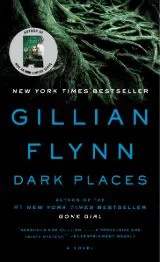Gone Girl by Gillian Flynn...
Gillian Flynn’s Gone Girl starts off as just...
By Kathy Graves1483

0

At seven years old, Libby Day’s mother and two sisters were murdered in what became known as the ‘Satan sacrifice’ of kinnakee, Kansas.
Although Libby famously survived, it was her testimony that solved the case, the killer was her brother. Twenty-five years later, Libby is a down on her luck, depressed adult, intent on turning a profit off her tragic history, a past she hasn’t been able to move past.
When the killing club—a secret society obsessed with notorious crimes—contacts her for more details, she agrees to help for a fee, and as her search takes her back down familiar roads, Libby finds out that the truth is nothing at all like she believed.
Before Gone Girl, Flynn released two books. Dark places were one of them. Although it wouldn’t go one to be as successful as Gone Girl, largely due to the hit big-screen adaptation, it is equally as dark, and just as twisted.
With a penchant for the macabre, Flynn has the distinct ability to reel you in and suck you into her world, often full of traumatized adults masquerading as functional human beings, and all with practiced ease and sense of familiarity.
Her deep exploration of the power of persuasion, and the traumatic effect of events is reflected in Libby Day, an adult riddled with flaws and imperfections, and unaware of her own shortcomings, and Flynn paints with her broad and vivid brush strokes, never shying away from exploring the less pristine characteristics of her subject matter.
As we delve deeper and deeper into Flynn’s world, we come to the startling realization that sometimes nothing is what it seems, and the darker and grittier the story gets, the better it becomes as we too feel invested in Libby, and her thrilling conclusion.
Updated 3 years ago